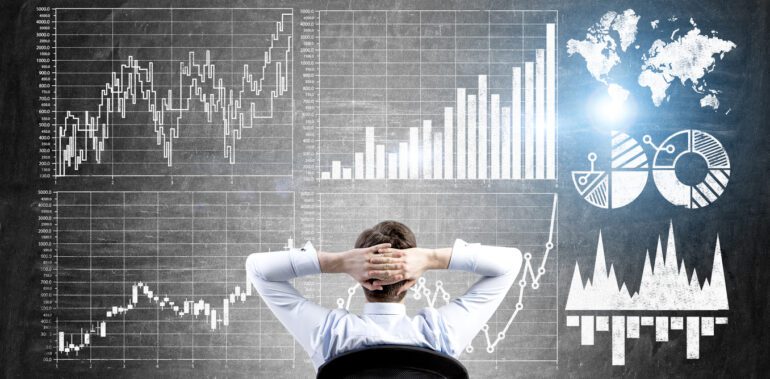TL;DR:
- AI and ML technologies are transforming various industries, including algo trading in the stock market.
- Algo trading rapidly processes data, enabling traders to capitalize on market opportunities.
- AI/ML-powered algorithmic trading efficiently interprets financial markets and enhances predictive analytics for stocks.
- Benefits include precise market insights, robust risk management, adaptive market strategies, a competitive edge, and informed decision-making.
- The algorithmic trading industry is expected to grow from USD 15.77 billion in 2023 to USD 23.74 billion by 2028, a CAGR of 8.53%.
Main AI News:
In today’s rapidly evolving business landscape, new-age technologies like artificial intelligence (AI) and machine learning (ML) are proving to be game changers across various industries. Many forward-thinking businesses have embraced these technologies and adapted them to suit their unique needs, aiming to unlock their full potential. As these technologies continue to mature, market participants have come to realize that predictive analytics holds immense promise, especially in complex domains. Algo trading within the stock market has emerged as a critical arena where market players harness the power of ML and AI to their advantage.
The Indian stock market is renowned for its volatility, dynamism, and non-linear nature. Numerous factors, including geopolitical events, unforeseen occurrences, economic conditions, and more, exert influence over the markets, making them inherently complex to navigate. However, the rise of algo trading has brought about a paradigm shift in how traders and investors approach the stock market. With the rapid integration of AI and ML, algo trading has the potential to revolutionize predictive analytics for stocks.
Algorithmic trading, or algo-trading, has gained significant traction in recent years due to its ability to swiftly process vast volumes of data and execute trades. This empowers traders to capitalize on market opportunities swiftly. The trend began around 2010, primarily among institutional investors and brokers. However, thanks to recent technological breakthroughs, retail markets now have broad access to algo trading platforms with API solutions. Consequently, algo trading has become a common practice among traders and investors in India, facilitating faster and more efficient deal execution while allowing them to exploit market opportunities that might be challenging to uncover manually. According to a joint report from DEA-NIFM, over 80% of algorithmic orders originate from colocation at both exchanges (NSE and BSE).
AI/ML-powered algorithmic trading excels in interpreting the financial markets. It leverages data to calculate price fluctuations, pinpoint the causes of price fluctuations, execute sales and trades, and stay abreast of the ever-shifting market landscape. Moreover, AI/ML trading can take various forms, including automated, algorithmic, high-frequency, and quantitative trading. Predictive analytics, often termed automated trading, comes into play when a trading system is developed by melding technical analysis with automated algorithms based on historical data.
In this realm, ML and AI algorithms shine by ingesting vast datasets, identifying patterns, and making predictions using statistical models derived from historical data. The amalgamation of AI and ML in algo trading equips traders with the ability to enable predictive analytics for stocks. This potent integration allows traders to gain insights into the markets, generate data-driven predictions, and comprehend significant market developments and trends. Consequently, traders stand to reap multiple benefits from their endeavors in the stock markets.
Potential benefits include:
- Precise Market Insights: AI/ML-based algo trading systems gather data and utilize sentiment analysis, which involves extracting text and linguistic cues and employing natural language processing (NLP) to identify accurate patterns within vast datasets.
- Robust Risk Management: Predictive analytics models incorporate effective risk management strategies, enabling traders to safeguard their portfolios against substantial losses.
- Adaptive Market Strategies: AI/ML models possess the capability to adapt to shifting market conditions and learn from past errors, continually enhancing their predictive accuracy.
- Competitive Edge: AI and ML integrated into algo trading can automate labor-intensive, repetitive processes previously performed manually. Furthermore, AI systems can vigilantly monitor the stock market 24/7, providing traders with a competitive edge.
- Informed Decision-Making: Success in the stock market hinges on numerous factors, but the ability to make the right decisions at the right time is paramount. With predictive analytics at their disposal, traders can gain a decisive advantage and make smarter choices. When combined with the speed of algo trading, this synergy becomes a powerful asset for sustained success in the stock markets.
Conclusion:
The integration of AI and ML into algo trading signifies a major shift in the landscape of predictive analytics for stocks. This transformative technology equips traders with the ability to make more informed decisions, manage risks effectively, and gain a competitive edge in the dynamic stock market. The projected growth of the algorithmic trading industry underscores the expanding opportunities for market participants in navigating volatile market conditions and achieving lucrative returns.

